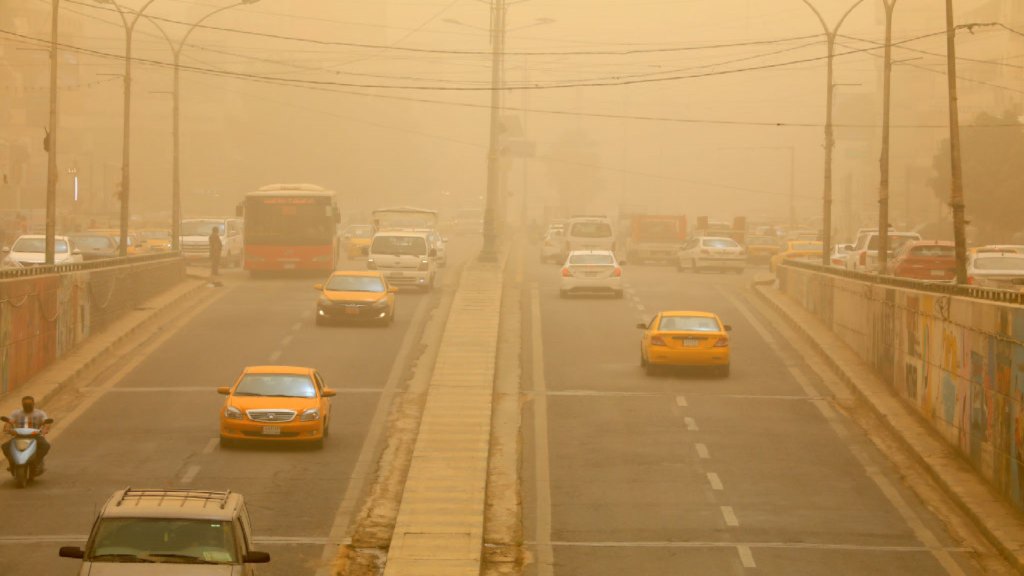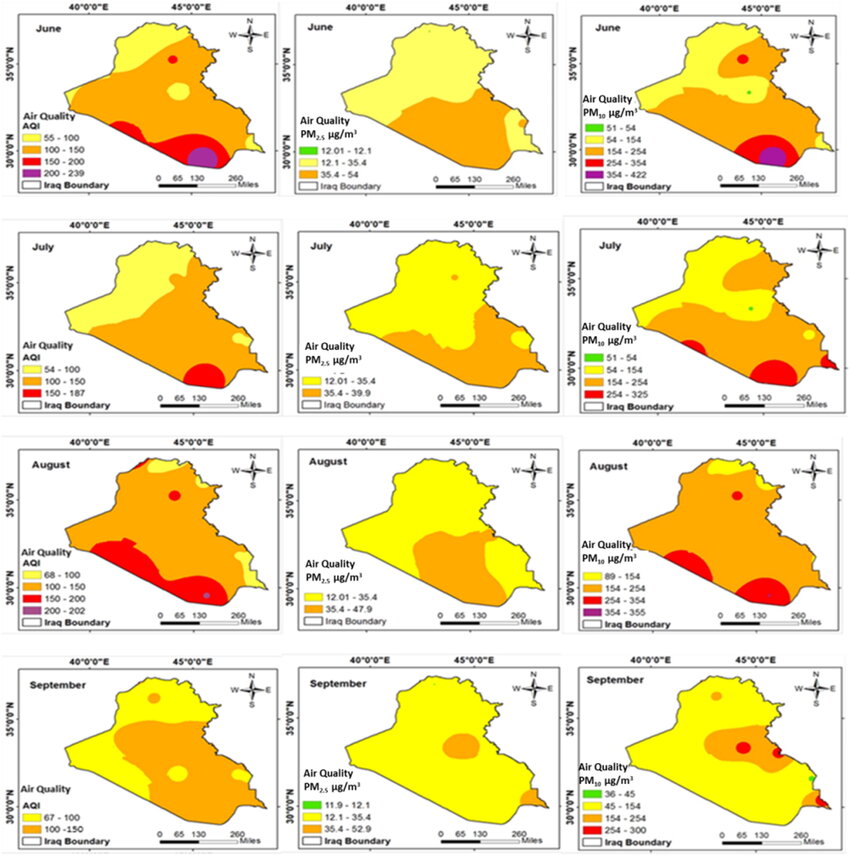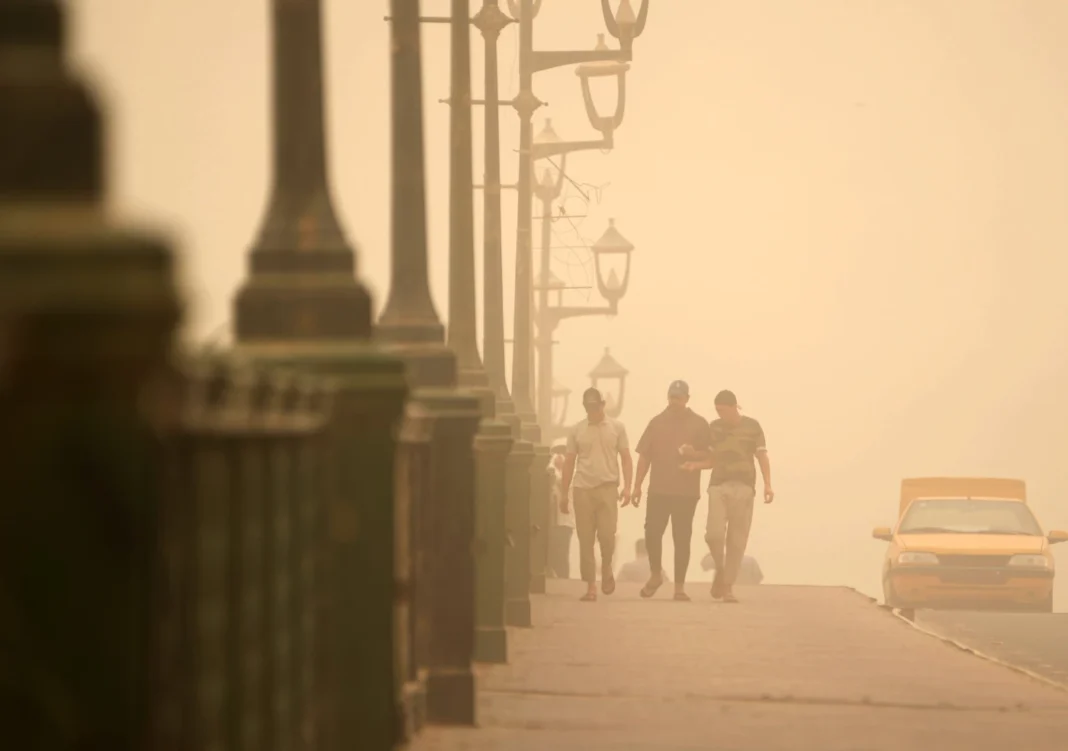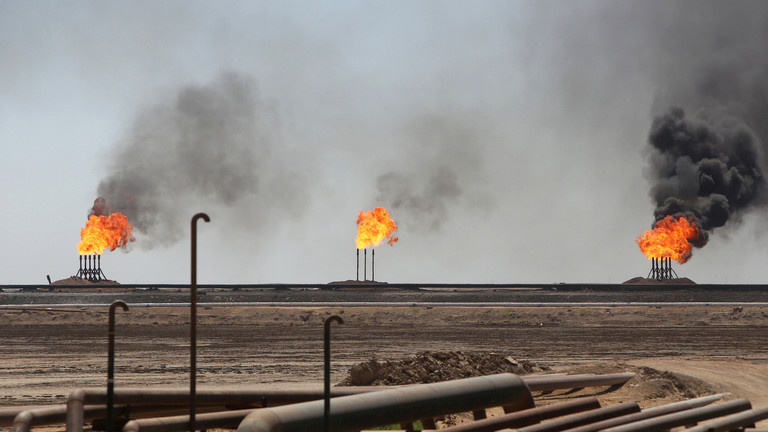Iraq, a country rich in history and culture, is facing an increasing threat to its environment—air pollution. The nation’s air quality has been deteriorating due to a mix of natural and human-made factors, making it a daily struggle for millions of Iraqis. From the bustling streets of Baghdad to the rural farmlands in the south, poor air quality is affecting the health of the population and the environment.

A Country Struggling with Pollution
Iraq’s air pollution crisis is multifaceted, with several sources contributing to the country’s declining air quality. Industrial emissions, vehicle exhaust, dust storms, and the burning of waste are some of the primary culprits behind the widespread air pollution. The effects of this pollution are felt most acutely in urban areas like Baghdad, where rapid population growth, combined with industrial and vehicular emissions, has led to unhealthy air quality levels.
The burning of fuel for electricity and the constant use of cars with low emission standards exacerbate the problem. The lack of proper waste disposal systems means that large amounts of trash are often burned in the open, releasing toxic chemicals and smoke into the air. These practices, along with limited environmental regulations, have made air quality in Iraq one of the poorest in the region.
Dust Storms: A Natural Contributor to Pollution
One of the natural contributors to Iraq’s dirty air is the frequent occurrence of dust storms. The country’s desert climate, combined with the effects of climate change, has led to an increase in the frequency and intensity of dust storms. These storms, which can last for days, carry fine particles of dust and sand that reduce visibility and fill the air with harmful particulates.
These dust storms not only contribute to poor air quality but also pose significant health risks, especially for people with respiratory conditions like asthma. The combination of dust, smoke from burning waste, and industrial pollutants makes the air in Iraq particularly hazardous during these storm events.

Health Impacts of Poor Air Quality
The health consequences of Iraq’s polluted air are severe. Studies have shown that exposure to air pollution can lead to respiratory diseases, cardiovascular issues, and even cancer. Children and the elderly are particularly vulnerable to the effects of dirty air, which can result in an increase in hospital visits and healthcare costs.
Airborne particulate matter, known as PM2.5 (particles smaller than 2.5 micrometers), is one of the most dangerous forms of pollution in Iraq. These tiny particles can penetrate deep into the lungs and enter the bloodstream, causing long-term health problems. Chronic exposure to PM2.5 has been linked to an increase in diseases such as lung cancer, heart disease, and stroke.
In addition to these long-term effects, poor air quality exacerbates respiratory conditions like asthma and bronchitis. In a country where healthcare infrastructure is already under strain, the growing number of individuals suffering from pollution-related illnesses adds a burden on an already overtaxed system.
The Role of Climate Change
Climate change is compounding Iraq’s air pollution problems. As the world warms, the frequency and intensity of dust storms are increasing, making the air even dirtier. In addition, the rise in temperatures and changes in weather patterns contribute to higher levels of air pollutants. Hotter conditions promote the formation of ground-level ozone, a harmful air pollutant that can lead to respiratory issues and damage crops.
Droughts and water scarcity, which are exacerbated by climate change, also worsen the air quality. Without sufficient rainfall to clear pollutants from the air, harmful particles linger longer, posing a greater health risk.
Government Response and Challenges
The Iraqi government has acknowledged the growing problem of air pollution, but efforts to tackle it have been limited. A lack of comprehensive environmental regulations, coupled with insufficient infrastructure and public awareness, has hindered progress. While there have been some attempts to improve air quality by introducing cleaner technologies and regulating emissions from factories, these measures have not been widespread enough to bring about significant change.
Furthermore, the political instability and economic challenges faced by Iraq have diverted attention away from environmental issues, leaving pollution to continue unchecked in many areas. There are few enforcement mechanisms in place to ensure compliance with environmental laws, and public education on the dangers of air pollution remains limited.
What Needs to Be Done
To improve air quality in Iraq, comprehensive measures are needed on multiple fronts. First, stricter environmental regulations should be implemented to control emissions from factories and vehicles. The use of cleaner energy sources, such as natural gas or renewables like solar, could help reduce the dependence on fossil fuels and improve air quality. Encouraging the use of cleaner, more efficient vehicles would also help reduce pollution from transportation.
Waste management is another critical area. Proper waste disposal systems and the reduction of open burning of waste would significantly lower the amount of harmful pollutants in the air. Additionally, reforestation and afforestation efforts could help mitigate the effects of dust storms by stabilizing soil and reducing the amount of airborne dust.
On a larger scale, Iraq must invest in its environmental infrastructure and promote public awareness about the health risks of air pollution. A national strategy that addresses climate change, dust storms, and air quality could provide the framework for tackling the pollution problem.
Iraq’s air quality is a growing concern, with pollution levels in major cities reaching hazardous levels. From the effects of industrial emissions to the frequent dust storms that plague the region, the people of Iraq are living in an environment where the air is often unsafe to breathe. Addressing this issue requires a coordinated effort from the government, businesses, and the public. While the road to cleaner air may be long and challenging, the health and well-being of Iraq’s population depend on it. With proper action and investment, Iraq can work toward improving its air quality and creating a healthier future for its people.



